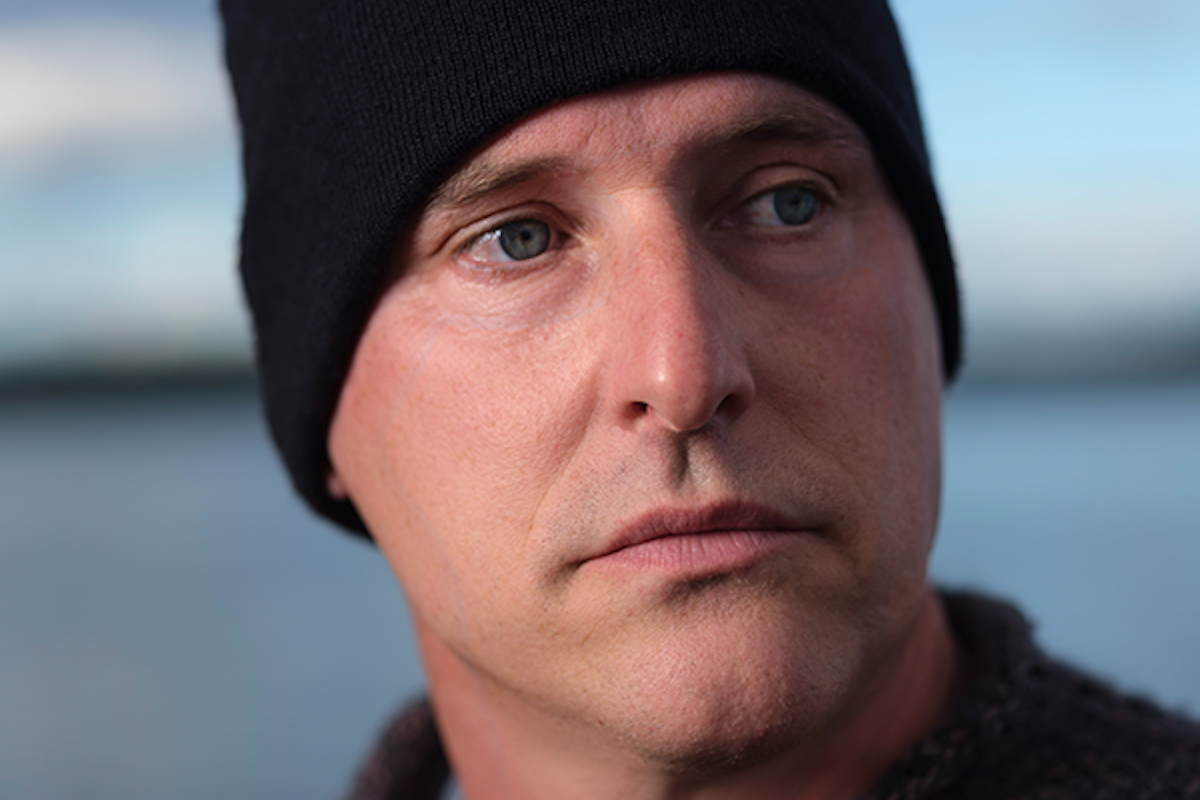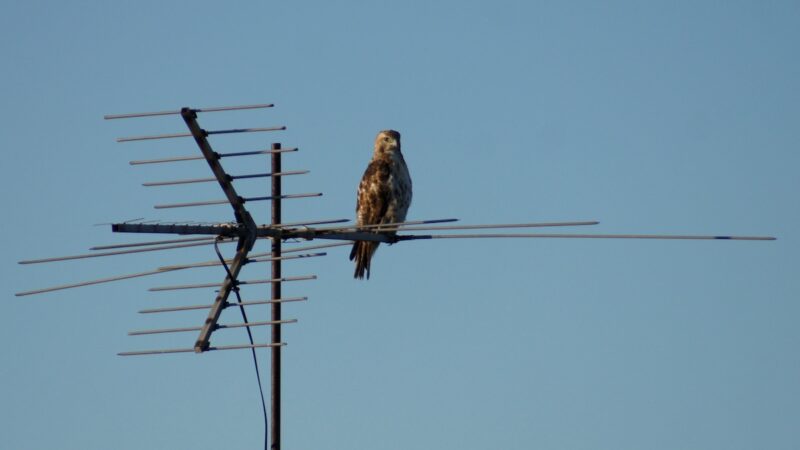‘Alone’ Winner Alan Tenta on Lessons Learned From the Show

Last week, Alan Tenta, a high school teacher from British Columbia, won the 10th season of the popular outdoor TV series Alone by surviving the longest in a remote area of Saskatchewan. For 66 days, he lived in a tent he built out of sticks and moss, and he ate whatever he could hunt, fish, or forage.
On Monday, we caught up with Tenta to talk about his life since he’s been on the show. We asked about what he learned from the experience since he’s had time to reflect, what the cameras didn’t show, and if he’d do it again.
Note: This interview was edited for clarity.
Q&A with Alone winner Alan Tenta
Outdoors.com: Besides the award money and some fame, how did ‘Alone’ change you?
Alan Tenta: That’s a question I get asked quite a bit. I think that the biggest takeaways from the show would be how important family is — the importance of telling your family what they mean to you while they’re still around — and that we have too much in today’s world. We have more than we need.
Outdoors.com: What do you mean by that?
Alan Tenta: I mean material items. When you’re out there and you have all that time to think, you realize that all these material items that we have aren’t where you find joy and happiness. It’s family and experiences.
Outdoors.com: Did you have that realization during or after filming the show?
Alan Tenta: I’ve always kind of thought that. It’s always been on my mind. I don’t remember what day it happened, but probably at least halfway through the journey out there I just started realizing the family I missed. I can’t even think of a material thing that I missed.
Outdoors.com: To paraphrase, the experience reinforced the idea that material possessions won’t make you happy.
Alan Tenta: It reinforced what’s important. Relationships, love, family, and your health are important. I’m not being negative towards people who like material things, but I’m saying that happiness and enjoyment don’t solely come from material things.
Outdoors.com: Even though you had a way to contact the production crew for help at any time — a sort of safety net — are you experiencing any trauma or anything like that from being isolated for so long?
Alan Tenta: No, not really. It was nice knowing that you have that tap-out button, but also, that actually made it difficult knowing that it could end at any minute. You just have to press that button and your game is over and you can get reintroduced into your normal life. But no. We all chose to go through this. There were a lot of tough times out there, but I wouldn’t say I have any trauma.
When I first came out, I guess, my first few nights back in refeeding camp, I did wake up in the middle of the night kind of feeling anxious about keeping a fire going. I got to heat up my rocks to put in my sleeping bag. So it took a while for my brain to re-adjust.
I can only speak for myself. Up to day 50, it was generally a positive experience for me. Yes, it was difficult, but it wasn’t until the weather got really cold that you really had to push and grind through each day.
Outdoors.com: Would you do it again?
Alan Tenta: I think I would.
Outdoors.com: I saw on your YouTube channel that you’ve been doing recaps of the show. I’m really curious to know, how did your storyline compare with what you actually experienced?
Alan Tenta: So you’re asking if my edit was accurate? Am I happy with my edit?
Outdoors.com: Yeah.
Alan Tenta: Generally, I’m very happy with the story that my edit came from. You have to remember that we’re told to film eight hours a day and there are 11 episodes with 10 other participants, so they can only take a very small amount of what we filmed out there to actually make the show. We have to take that into consideration. But I’m happy with the story and the information that they showed. I have no complaints about my edit whatsoever. I feel it was a pretty good representation of my story and my actual experience out there. I’m very happy with it and how accurate it was.
Outdoors.com: Was there anything you filmed that you wish made it into the show?
Alan Tenta: Yeah. Lots. I mean, this comes up every year. There are some little funny things I did that I thought might make it. Of course, they can’t show all my food procurement. I think they showed me catch maybe nine fish, but I caught more fish than that.
Outdoors.com: Was there anything that you didn’t film that you wish you had?
Alan Tenta: Yes. One night . . . I had shot a grouse with my bow and I was down by the beach, sitting on some rocks, plucking it. I set up my camera and I went back and forth to make sure the shot was right. The sun kind of going down, it was kind of dusk, and the lake was calm and perfect. So I set up the camera again and sat back down. I looked across the lake and I saw ripples in the water like a series of geese coming towards me. What are those? I’m saying. Those aren’t ducks.
So, they came close and then they disappeared. Then the Vs would come up again, and they got closer and closer. I was just sitting still on the shore and it turned out to be a family of otters. They didn’t see me. They swam right by me about 10 to 15 yards right in front of the camera.
One of them noticed me. They kind of looked almost like a dolphin with how they were swimming with their tails. They went straight up in the water to see what I was and they made all these cool, almost like honking noises and then they took off. It was a really cool encounter and after all that, I’d forgotten to turn on my camera. I was pretty bummed out.
Outdoors.com: Watching the show, what surprised you or what did you find most interesting about the other contestants or their storylines?
Alan Tenta: Dude, that’s a tough one. What surprised me the most? I loved Taz’s canoe. I was impressed by Taz’s craftsmanship and the things he made. I was impressed by Wyatt’s gill net spot where he was able to catch those two monster pikes. I like the way that Cade and Luke were able to dig into the earth to make shelter. I don’t think there was a spec of dirt in my whole spot. It was just rock covered up in moss. What else impressed me? Just seeing everybody’s mental fortitude and how they pushed through things. And I was also impressed with Melanie’s foraging. Plus, she did really well without getting a lot of meat.
Outdoors.com: You mentioned mental fortitude. How did you fight the boredom when you weren’t filming yourself? How did you keep your mind stimulated?
Alan Tenta: I can sit for long periods of time and just be happy being in my thoughts, so that personality trait was helpful. But I also did some meditation research. My brother sent me some links and I listened to some people with some thought processes to help. One of them was suffering is usually short-term. So that month, I had the mindset of okay, I’m feeling this way, fight through it, and this whole experience will be over soon.
I kept telling myself, ‘This is a rare opportunity. I’m extremely lucky to have this opportunity. I don’t want to waste it, so I’m going to push through those moments of suffering. They’re going to be over soon. And I want to go as far as I can, and I want to push my body as far as I can. I want to experience it to the utmost.’ I even wanted to feel what it was like to suffer. I wanted to feel what it was like, as weird as that sounds.
Outdoors.com: Did you ever reach nirvana?
Alan Tenta: No.
(Smiles but no laughter)
Outdoors.com: You touched on this a little bit already, but what was the transition period like from being alone to being with people?
Alan Tenta: There was a very slow introduction process. That first night, it was just my wife and I, and then she flew back home the next day. And there was a very strict refeeding program. It was at least seven to 10 days of refeeding.
You’re also slowly reintroduced to people back at camp. There weren’t very many people there because I was the last one. The person that got second — Wyatt — was there and we spent a little bit of time together.
People are bringing you food. You’re getting a checkup by a paramedic a few times a day to make sure you’re all good.
I guess the biggest thing for me was the noise. I wasn’t used to the noise. And when I was in a room with a bunch of noises around me, I felt almost overstimulated for a little while. And maybe a few little feelings of anxiousness. But other than that, it was a pretty smooth and easy transition.
Outdoors.com: How long did it take you to regain all your weight?
Alan Tenta: Just a couple of months. I was on a seafood diet. When I got back, I saw food and I ate it — total dad joke.
Outdoors.com: What’s next for you? What do you want to do now?
Alan Tenta: It’s only been a few days since this happened, so I want to expand my YouTube channel Tenta Outdoors. That’s a plug. I really enjoy making videos. I really enjoy teaching survival skills.
Watch season 10 of Alone on the History Channel.
Source: https://outdoors.com/alone-winner-alan-tenta-on-lessons-learned-from-the-show/






